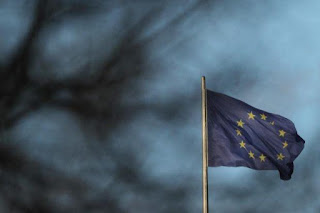The Times of Malta, 28 December 2015 http://www.timesofmalta.com/articles/view/20151228/opinion/The-social-justice-index.597032
Why should we care about social justice? There are a number of reasons for this. Social cohesion, equality, social stability, well-being and the quality of life are all related to the concept.
According to the ‘Social justice in the EU – index report 2015’, social justice has a positive effect on economic growth.
The report has just been published by Bertlesmann Stiftung, the European think tank whose scholarly reports enjoy a high reputation in the policy-making field. The report compares the profiles of the 28 member states of the European Union through a social-scientific methodology.
The highest ranked countries, in order, are Sweden, Denmark, Finland, the Netherlands and the Czech Republic. The last positions are taken up by Italy, Bulgaria, Romania and, at rock bottom, Greece.
One main finding of the 2015 report is that the low point of social injustice within the EU appears to have been reached, although there is no evidence of a comprehensive turnaround.
Other main findings are that poverty and social exclusion remain of major concern, that there is an enormous social gap between Northern and Southern Europe and that children and young people have been disproportionately affected.
According to the report, Malta ranks 16th out of 28 countries. Its score, 5.43, is slightly below the EU average of 5.63 and is similar to the overall score of Poland and Slovakia. In 2014, Malta’s score was 5.50.
On a relatively positive note, Malta ranks higher than all other southern EU member states.
On the other hand, problems that have been characterising Maltese policymaking remain conspicuous by their presence.
A look at Malta’s six dimensions of the EU index reveal that, among the 28 countries, Malta ranks ninth in labour market access, 11th in health, 14th in poverty prevention, 21st in social cohesion and non-discrimination, 25th in intergenerational justice and 27th in equitable education.
Malta ranks among Europe’s top 10 when it comes to labour market access.
Unemployment, jobless youth and long-term idleness have dropped since 2010. Malta’s unemployment rate stands at 5.9 per cent, which is roughly the same as in 2008, and youth unemployment stands at 11.8 per cent, which, again, is similar to that in 2008. In both cases, Malta ranks third best in Europe.
The low point of social injustice in the EU seems to have been reached
On the other hand, however, the report highlights lack of equity as regards employment opportunities.
Notwithstanding improvements made, such as increased access to childcare, women “face the most exclusionary labour market in the EU”.
Besides, lower-skilled people and older workers face problems with regard to labour market access. Malta’s employment rate places it 16th in Europe but remains terribly low among older workers, where Malta ranks 25th.
Malta’s education system is seen as still facing the tremendous challenge of “the second highest rate of youth dropping out of education and training”. Again, some policy improvements have been made but there still is a strong link between youth unemployment and a lack of basic skills.
The report also highlights the challenge of “intergenerational justice related to environmental sustainability”. The report refers to Malta’s second lowest rate of renewable energy in Europe, which “remains alarmingly far below the 17.9 per cent EU average”.
Efforts being made to protect biodiversity and water supply are seen as taking years to bear fruit.
A closer look at some figures reveals that Malta’s percentage of persons at risk of poverty or social exclusion has grown from 19.7 per cent in 2008 to 24 per cent in 2015. The figure goes up to 32 per cent when focusing on people aged 17 and under, an increase of eight percentage points from 2008. As regards those aged 65 and over, Malta’s percentage stands at 20.8, a drop of two percentage points from 2008.
On a worrying note, people in Malta experiencing severe material deprivation have increased from 4.4 per cent in 2008 to 10.2 per cent in 2015 and the percentage goes up to 13.8 when focusing on those aged up to 17 years. There has also been an increase in people in severe material deprivation aged 65 and over, from 3.1 per cent in 2008 to 8.1 per cent in 2015.
As the new year is approaching, I hope such reports are given the importance they deserve by politicians and policymakers. Informed policymaking is a better guarantee for sustainability and fairness.











